第96章 Chapter LIV(2)
There was a curious instance of a horse, which, by the bye, I consider the most noble animal of creation, which was ridden round by his master, to deliver newspapers. He invariably stopped at the doors where papers were to be left; but it happened that two people, living at different houses, took in a weekly newspaper between them; and it was agreed, that one should have the first reading of it on one week, and the other on the following. After a short time the horse became accustomed to this arrangement, and stopped at the one house on the one week, and at the other house on the following, never making a mistake."
"That was very curious; what a sagacious animal he must have been!" observed William.
"Animals also are, as you know, capable of receiving instruction, which is another proof of reasoning powers. The elephant, the horse, the dog, the pig, even birds may be taught a great deal."
"But then, papa, I still wish to know where the line is to be drawn between reason and instinct."
"I was about to come to that very point, William. When animals follow their instinct in providing their food, bringing up their young, and in their precautions against danger, they follow certain fixed rules, from which they never deviate. But circumstances may occur against which their instinct can afford them no regular provision; then it is that their reasoning powers are called into action. I will explain this by stating a fact relative to the bee, one of the animals upon which instinct is most powerful in its action. There is a certain large moth, called the Death's-head moth, which is very fond of honey. It sometimes contrives to force its way through the aperture of the hive, and gain an entrance. The bees immediately attack it, and it is soon destroyed by their stings; but the carcass is so large, that they cannot carry it out of the hive, as they invariably do the bodies of the smaller insects which may have intruded, and it appears that their sense of smell is very acute. What, then, do they do to avoid the stench arising from the dead body of this large moth? Why, they embalm it, covering it entirely with wax, by which it no longer becomes offensive to them."
"But, papa, might not their instinct have provided for such an event?" observed William.
"If such an event could have occurred to the bees in their wild state, you certainly might have raised the question; but recollect, William, that bees in their wild state live in the hollows of trees, and that the hole by which they enter is never more than sufficiently large to admit one bee at a time; consequently, no animal larger than a bee could gain entrance, and if it did, could of course have been easily removed from the hive; but the bees were here in a new position, in an artificial state, in a hive of straw with a large aperture, and therefore met with an exigence they were not prepared for, and acted accordingly."
"Yes, papa, I perceive the difference."
"I will conclude my observations with one remark. It appears to me, that although the Almighty has thought proper to vary the intellectual and the reasoning powers of animals in the same way that he has varied the species and the forms, yet even in this arrangement he has not been unmindful of the interest and welfare of man. For you will observe, that the reasoning powers are chiefly, if not wholly, given to those animals which man subjects to his service and for his use - the elephant, the horse, and the dog; thereby making these animals of more value, as the powers given to them are at the service and under the control of man."